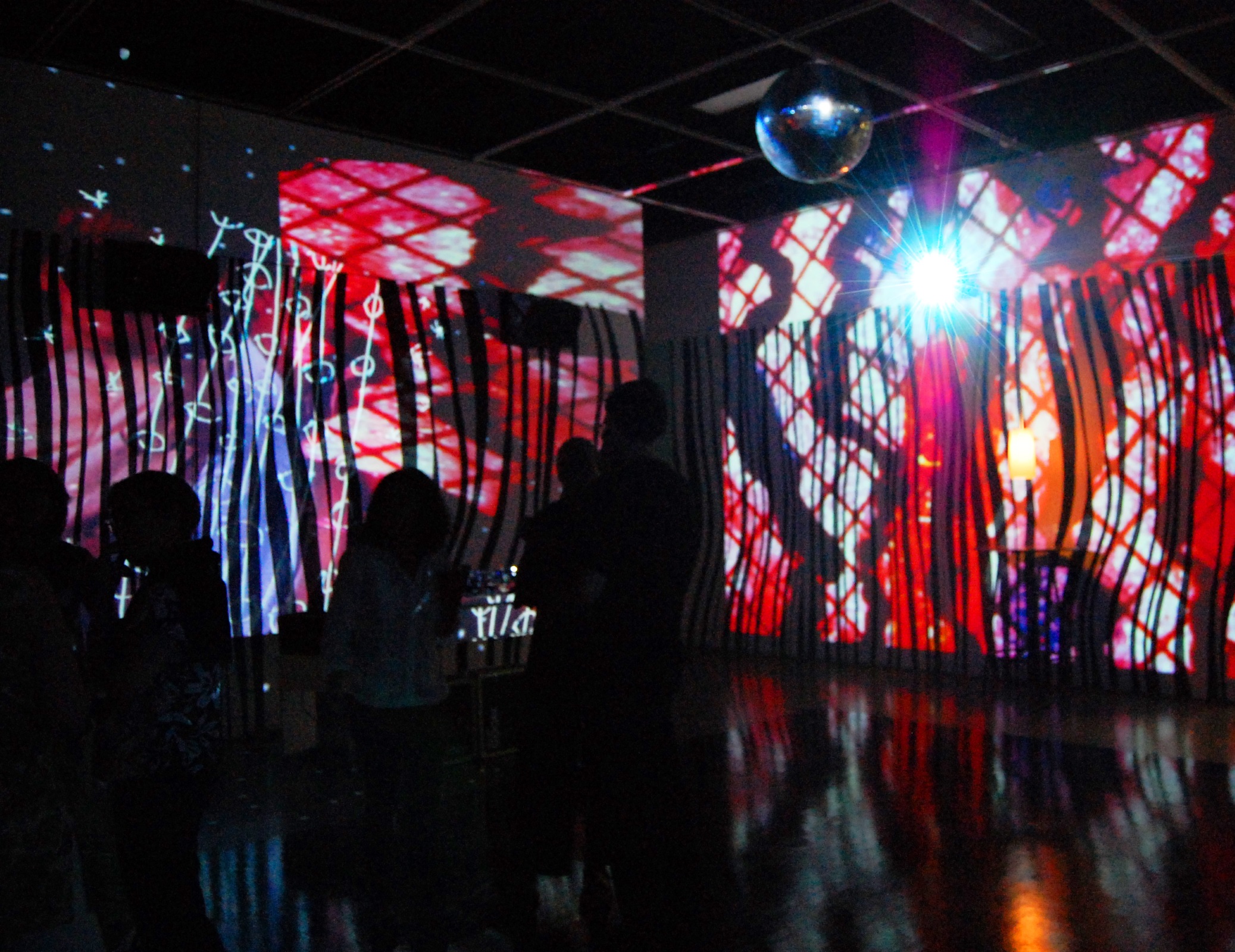An art gallery gets transformed into a social club for Montreal’s artistic enthusiasts
Since before the time of the Quiet Revolution, Quebecers have lived in the constant flux between Francophone and Anglophone culture. In the past, these discussions took place among artist collectives in cafes, bars and other public places. Today, the desire to come together to discuss the questions of identity and modernity is rising to the forefront of the population.
From Sept. 5 to Oct. 11, The Leonard & Bina Ellen Art Gallery has been transformed into a social club. So much more than a static exhibition, Just Watch Me is an immersive experience that emulates – in appearance and purpose – artist collectives such as Mousse Spacthèque, one of the first night clubs of the Quiet Revolution era.
From retro decoration and vintage tables to lounge chairs and disco lighting, the gallery has become a place of discussion and exploration for questions of identity and Quebec culture in the aftermath of the Quiet Revolution. The month-long event was initiated by Romeo Gongora, (who is himself an artist) and was made a reality through his partnership with other organizations such as University of the Streets, CUTV and Les Éditions de la Tournure along with many individuals. Anne-Myriam Abdelhak of CUTV described the T.V. station’s involvement: “Romeo contacted CUTV because of its nature of being a community organization dedicated to video production and in giving voices to various communities, but also because of its history of producing socially and politically engaged content.” CUTV’s role in the Just Watch Me exhibit is organizing weekly activities such as a camera workshop and filming The Pulse (CUTV’s News show) to name a few.
On their website, the organizers state that for Gongora, “revisiting the social and political issues which arose during this period is crucial in order to pursue a continuous quiet revolution”. Michèle Thériault, Director of the gallery, described the project as “an entry point.” It is meant to emulate the environments created by artists in the 60’s. She described the atmosphere of those clubs as being utopic. They were places filled with people hoping for change.
The gallery, which serves as a café by day and a discotheque by night, has been turned into a place of discussion and discovery. With events happening within the space for the entire month, including Disco every Friday night, artist talks, film screenings, residency programs and more, the usefulness of this creative space becomes clear. The need still exists for a public space of free speech and dialogue for the exploration of a cultural identity; a place free of the ‘just watch me’ attitude.
The title of the event, Just Watch Me, is taken from the renowned and controversial quote made by Prime Minister Pierre Elliott Trudeau during the October Crisis in 1970. Shortly following this interview, the War Measures Act was put in place for the first time during a period of national peace. The phrase has since been seen as a dismissal of not only the civil rights due to every Canadian, but also of the concerns and convictions of the people of Quebec. Clearly, Trudeau’s actions were an inspiration to the artists, as seen not only in the title of the event but in the content as well. Upon entering the gallery visitors come face to face with the video recording of Trudeau making the famous comments.
After the Maple Spring student protests, still fresh in the minds of many, as well as the heated debates that occurred over the Charter of Values, discussion surrounding the new identity of Quebec society have yet to reach any conclusion. Just Watch Me will be held until Oct. 11 at the Leonard & Bina Ellen Art Gallery. For more information, visit the gallery’s website: http://ellengallery.concordia.ca/en/expositions_justwatchme.php
